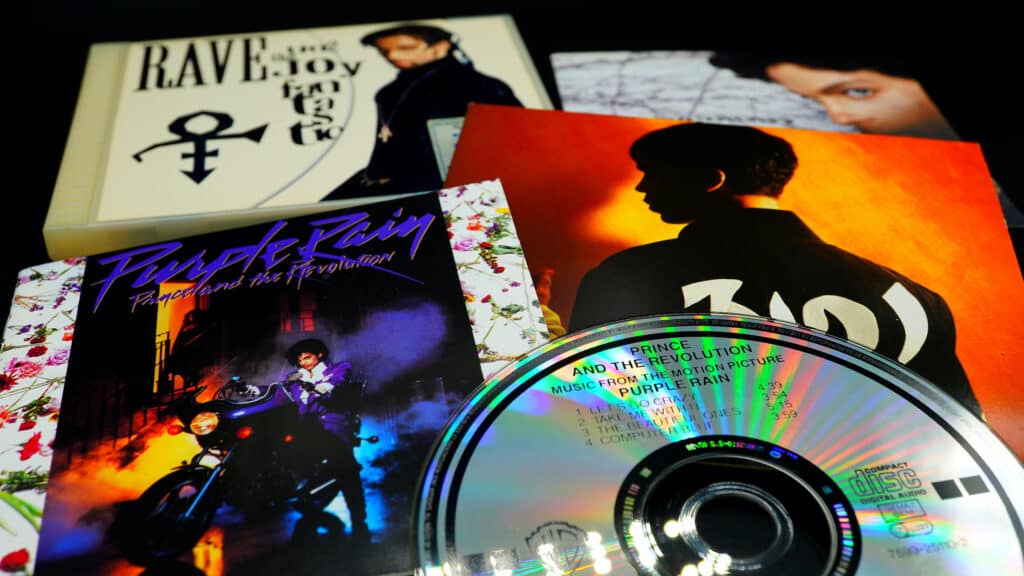The world of the music industry, especially with regards to who owns the masters of the music being produced, can be both complicated and seemingly brutally unfair. One artist who faced intense struggles with these issues over ownership of their masters was American musician Prince.
Unlike many other recording artists, Prince owns all of his masters. Many of his masters had to be earned after long back and forth and struggles with the recording labels that he was once signed with.

Prince didn’t start out owning his masters, he had to fight tooth and nail to retrieve them from the grip of the record label that he was once signed with. It was only after decades of songwriting, performing, and recording that he would eventually manage to regain ownership of them.
What Are Masters?
Your masters are essentially the original recordings of your tracks, the very first copy. It’s not so much a real, physical thing, as it is a concept. The master is the final product, the sum of the songwriting, the production, and the recording, all rolled into one.
Part of the deal when an artist is newly signed with a record label is that the masters of new tracks will be owned by the label. The reason for this is the way that the payment to the artist is structured.
The artist will receive one upfront payment, then after the record label has recouped their losses, you will receive a percentage of the sales, also known as the royalties.
As you can imagine, this means that the artist needs to have a lot of faith and confidence in the record label when they are given the assurance of payment, even after they have left the label. Additionally, a former record label owning your masters can be creatively limiting if you wish to revisit the work.
Until some more recent development of distribution platforms that are better geared for success in the digital age, this methodology has been an industry standard.
Prince’s Uphill Battle
The conversation about masters, artistic rights, and the way that musicians are treated underneath a label has become far more commonplace recently. There was a time not too long ago when the luxury of even having a conversation about such matters was completely off the table.
Even some of the biggest and brightest stars, musicians that had far-reaching fame and popularity, still did not have the leverage required to get what they wanted out of their record label.
Prince was in exactly this situation, as he wished to have ownership of his masters from the record label. In particular, Prince was utterly vexed with the concept that a label would retain ownership of a song even after it had been reimbursed financially, going as far as to describe it as “completely abhorrent.”
Although Prince initially had a good relationship with his label, Warner Bros Records, a relationship that saw millions generated in sales, eventually the honeymoon would come to an end.
Prince had already established himself as a multi-talented musical prodigy, and his ability to control every element of the creative process seemed almost destined to collide with the way that a record label prefers to govern over its artists.
Collide they did, as the relationship between Prince and Warner Bros essentially collapsed in on itself, imploding and taking everyone with it. Prince changed his name and threatened to remake and re-release every album he had made up until that point.
Along with that, there were a slew of public complaints from the artist against not only Warner Bros Records, but against record labels in general. An exemplification of this was Prince’s appearance with the word “slave” written across his face, a message to onlookers and labels about his dissatisfaction with the industry.
The Battle Rages On
Ever the rebel, Prince campaigned loudly for better artists’ rights throughout his career. It was a lifetime of dissatisfaction and malcontent that slowly built up over his career and his struggles with record labels.
Although Prince’s protracted multi-decade battle would eventually see a conclusion, other musicians still face similar problems today, struggling to buy back or regain control of their masters.
Singer-songwriters such as Taylor Swift still struggle to this day with the machinations of their record labels, and their attempts to win back their masters. Whether he has been a direct inspiration to artists following the same path or not, Prince’s words must ring true, “If you don’t own your masters, your masters own you.”